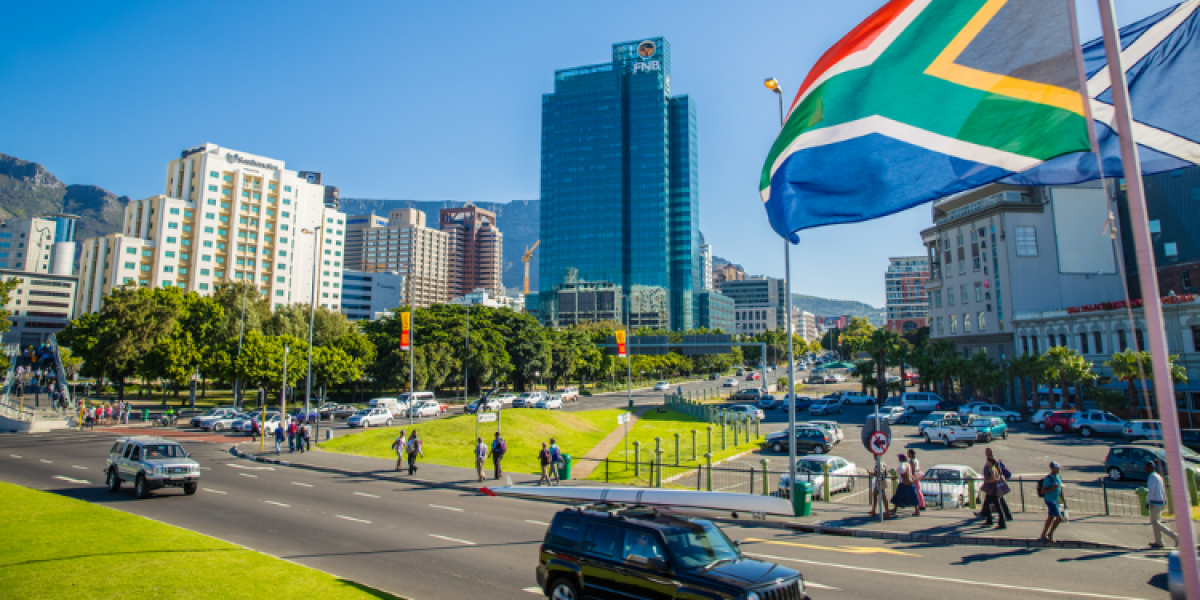
Major changes are on in South Africa. In 2021, the government started the reform of its work visa system. On the one hand, South Africans are being prioritized in the labor market, which means that there are even more restrictions on the recruitment of global talent. On the other hand, it wants to tap into the wealth generated by digital nomads by creating new visas to attract them. One thing is for sure: expats should expect sweeping changes in the upcoming months and years.
What are the major visa changes?
New rules have been introduced to issue work visas in South Africa. In an annex to the immigration law, the Department of Employment and Labor (DEL) announced new regulations. From now on, the department will be in charge of examining all visa applications. Applications will be subjected to a clearly defined procedure and must abide by a "compulsory preliminary process" before being submitted to the Visa Facilitation Services (VFS). This means more steps and more red tape at a time when many countries are looking to ease their procedures.
What was the former visa system like?
Before the new regulations, a South African employer simply had to register the position which required foreign workers at the DEL. The ministry would then provide them with a list of potential candidates. After that, the employer committed to interviewing them all. But under the new regulations, the DEL will check each visa application individually.
The scope of the new regulations
The annex will apply to general work visas, including their renewal and change of status, to corporate visas, and to the resident permits of foreigners who already hold a valid work visa but have received a new job offer.
In compliance with the new regulations, DEL will examine the job offer submitted by the employer and suggest candidates. The employer then needs to inform the DEL if they are keen on hiring one of these candidates. The employer sends a visa application form to the ministry's local office (DEL) and also forwards their contact details for post-application monitoring by the DEL. The ministry will request a "letter of recommendation" from the Department of Home Affairs. Once this letter has been obtained, the DEL will send the employer a "visa finalization notification" by email.
In the event of an unfavorable decision, the employer will not be able to appeal to the Ministry of Employment and Labor. An appeal can only be sent to the Department of Home Affairs. If the decision is affirmative (upon receipt of the notification), the employer will have 30 days to submit the visa application to the Department of Home Affairs. When all of this is put into practice, the application timeline becomes longer. The DEL is struggling to wrap up cases and is experiencing a build-up in delays.
Economic recovery and immigration law
It's a real headache for the South African government. Attracting foreign professionals while fighting against illegal migration. In early July, President Ramaphosa published the "Framework for a Social Compact in South Africa," a document that is supposed to embody a new economic and social vision for the country. But it is not the first such promise that the government has made and has ultimately failed to fulfill. The skeptics, who no longer believe in "political will", remind people that South Africa is now entering its 14th consecutive year of the energy crisis. Ramphosa has promised to invest 1200 billion rands into electricity "by 2030." This investment will largely depend on the private sector.
But opponents are demanding safeguards. Corruption is still a blight in South African politics. The compulsory "lifestyle audits" to fight against corruption are not always carried out, while over 200 members of the ANC (African National Congress) are involved in corruption scandals. The annex to the immigration law comes against a backdrop of social tension, and the poorest are paying a heavy price.
The rise in violence against illegal expatriates
For many years, companies have illegally hired expats. In May 2022, the unemployment rate in South Africa reached 34.5%. However, this high figure has been decreasing since Covid. Unfortunately, this relative improvement is insufficient to attenuate the population's frustration. One section of the population has designated a scapegoat: illegal expats. Since several months, a group of people have taken the law into their hands and are spreading terror. The violent crimes keep increasing: blackmailing, torture, and even murder. In April, Diepsloot, a township of Johannesburg, was the theater of multiple xenophobic attacks. Shenilla Mohamed, the director of Amnesty International South Africa, has raised the alarm: "The killings that have occurred in Diepsloot over recent days are not isolated incidents. These attacks represent just the latest wave in a rising tide of violence against migrants in South Africa."
How is the State responding?
Faced with accusations of the inaction of the police forces, President Ramaphosa has promised more stringent measures. He is also urging companies to stop circumventing the law. Under the new immigration regulations, all foreign professionals will need to have an official job title to be able to work in South Africa, even if they are employed by an individual. Employers who do not comply with this law will receive penalties. In addition, the Department of Home Affairs has announced that it is currently investigating companies in order to arrest illegal expats and their employees.
Who are the expats targeted by this new law?
At first glance, the immigration law only targets illegal expats. But some fear that this system will more easily sanction poorer foreigners. International organizations fear that there will be a conflation between poor expats and illegal expats as barbaric crimes continue. Expats who are their victims are asking for help from the government, as not all of them are illegally staying in South Africa. They are requesting that their residence status be respected and their residence permit be extended so that they can live in peace and with dignity.



















